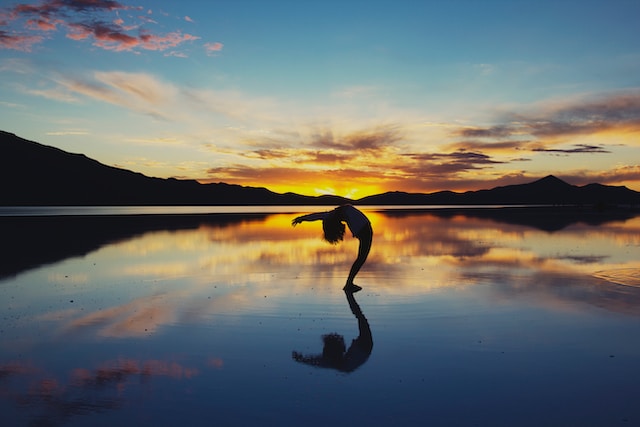Yoga, an ancient practice rooted in mindfulness and physical movement, is proving to be a powerful tool in promoting endurance and reducing frailty among older adults. Beyond its popular image as a fitness trend, yoga offers a comprehensive approach that nurtures physical, mental, and emotional well-being. As we delve into the latest research, we uncover the positive impact of yoga in supporting older adults as they age with grace and vitality.
Frailty, often regarded as an inevitable consequence of aging, can significantly affect an individual’s quality of life. However, recent studies have shed light on the transformative potential of yoga in counteracting these age-related declines. Emerging evidence suggests that regular yoga practice can lead to substantial improvements in endurance, strength, flexibility, and overall well-being.
A comprehensive study conducted by a team of researchers sought to explore the effects of yoga on older adults experiencing various degrees of frailty. The participants engaged in a structured yoga program that integrated physical postures (asanas), breath control (pranayama), and meditation. The findings were remarkable. Over time, the participants demonstrated significant improvements in endurance, muscular strength, and flexibility. These enhancements translated into improved physical function and reduced frailty, offering hope for those navigating the challenges of aging.
The effectiveness of yoga in enhancing endurance and reducing frailty can be attributed to its holistic nature. Yoga fosters a mind-body connection that emphasizes awareness, balance, and mindfulness. By synchronizing breath with movement, older adults cultivate body awareness, enhance coordination, and improve balance, which are crucial for maintaining stability and reducing the risk of falls—an important concern in aging populations.
Moreover, yoga’s adaptability makes it accessible to individuals of all fitness levels and physical abilities. Skilled instructors can modify poses and sequences to accommodate specific needs, ensuring a safe and personalized experience for each participant. This inclusivity enables older adults to engage in a practice that suits their capabilities, fostering a sense of empowerment and promoting long-term adherence.
Beyond the physical benefits, yoga has a profound impact on mental and emotional well-being. Aging often comes with its own set of challenges, including increased stress, anxiety, and a sense of loss. However, the practice of yoga provides a nurturing space for individuals to cultivate mindfulness, reduce stress, and foster a sense of inner peace. By focusing on the present moment and incorporating meditation and relaxation techniques, older adults can enhance their overall well-being, improve cognitive function, and develop emotional resilience.
The social aspect of practicing yoga in a group setting further enhances the well-being of older adults. Engaging in yoga classes fosters a sense of community, connection, and mutual support. Participants find solace in shared experiences, and the collective energy of the group creates an environment where individuals can forge meaningful relationships and combat feelings of isolation, ultimately improving their overall psychological well-being.
As the research on yoga’s benefits for older adults continues to unfold, it is imperative to make yoga accessible and integrated into healthcare systems and community programs. Governments, healthcare providers, and community organizations should collaborate to ensure that affordable and inclusive yoga classes are available to older adults of all backgrounds. By embracing the transformative potential of yoga, we can empower older individuals to age well, nurturing their physical vitality and embracing the fullness of life’s journey.
In conclusion, yoga offers a powerful pathway for aging well, promoting endurance and reducing frailty among older adults. Through its integration of physical movement, breath control, and mindfulness, yoga nurtures resilience and vitality, fostering physical, mental, and emotional well-being. As the scientific evidence continues









